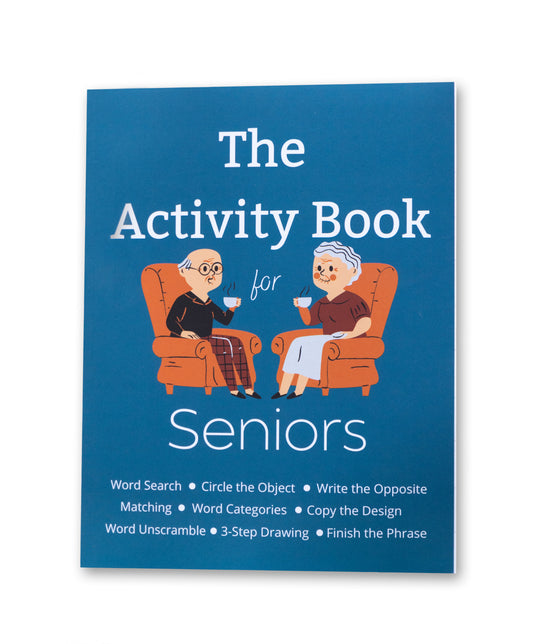
Communicating with Someone with Demenita
Share
How to communicate with someone with dementia?
When someone has hearing loss, we all know to speak louder. But when someone has memory loss, this same strategy is often tried with little to no success. Communicating with your mom or dad who has dementia can be difficult. You may not even get a response when you ask them a question. Maintaining interaction and relationships are essential to promoting quality of life and well-being even for people with dementia. There are definitely some strategies to help make conversations more pleasant for you and your loved one.
When communicating with your loved one, a helpful tip can be trying to observe their body language when talking with them. If they respond to you with a calm tone of voice, you’re likely on the right track in communicating. But if they withdraw in silence or respond with irritability or confusion, knowing some strategies can help.
7 dementia communication techniques
- Speak slowly with short sentences to give their brain more time to make sense of the words spoken.
- Give them plenty of time to respond to what was said before going on with more words. When you ask them a question, try counting to ten slowly in your head to allow them time to respond before you repeat the question.
- Position yourself directly in front of them and slightly below their line of vision. The peripheral vision tends to fade with dementia, making right in front of them at about 2 feet away and at eye level the best position for gaining their full attention when you speak. Maintain eye contact and give them your undivided attention.
- Even though the ability to interpret what is said during a conversation declines with dementia, your loved one will always understand the tone of voice used with them. Use a calm and soft tone of voice when speaking to them. Let your nonverbal communication show that you care about them and accept them as they are.
- Open-ended questions tend to be more challenging for seniors with dementia to answer. It is easier for them to answer a question with options. For example, when figuring out what they want for breakfast, instead of saying, “What do you want to eat?” say something like “Would you like eggs or toast?”
- Avoid correcting them and arguing with them. They’ve likely lost the ability to see the other side of an issue and arguing can often just make them feel stressed.
- Avoid asking them if they remember something. Doing so just reminds them of their memory loss, which is painful for them.

What is the best environment for someone with dementia?
The best environment for a conversation is one that is calm and quiet. The brain’s ability to filter out information becomes faulty with memory impairments, causing them to notice sounds and activity in a room that they used to be able to easily tune out. Even another person walking in a room while you're talking is enough to cause them to lose their train of thought. Create a calm environment during a conversation by:
How to create a dementia friendly environment?
- Eliminating all background noise
- If you’re working at a table, remove all items they won’t be using
- Decrease the activity and movement in the room (pets, other people, cell phones, TV)
- Close the door so it’s quieter
Why is reminiscing important for someone with dementia?
As dementia progresses, people with dementia talk less and less. Keep in mind that their long-term memory is more intact than their recent memory. Reminiscing about where you vacationed as a kid with your mom/dad might prove to be a more successful conversation rather than what they did last night. If you have old photos to look at as well, that can help trigger the memories to engage in a conversation.

Dementia and overstimulation
When there is not much you can do to make the environment more calm and quiet, try to limit the amount of time they’ll need to spend in that situation. Realize they are likely to feel stressed and become withdrawn with overstimulation. For example, going to a birthday party might need to be limited to 2 hours rather than the usual 4 hours that you’d typically stay. Keep your expectations for your loved one low during those 2 hours, knowing they’re challenged by the overstimulation. Give them time to decompress afterward. They are unlikely to understand and communicate to you verbally why they feel stressed, so your awareness of their reactions and subtly modifying the environment is key to their well-being.






